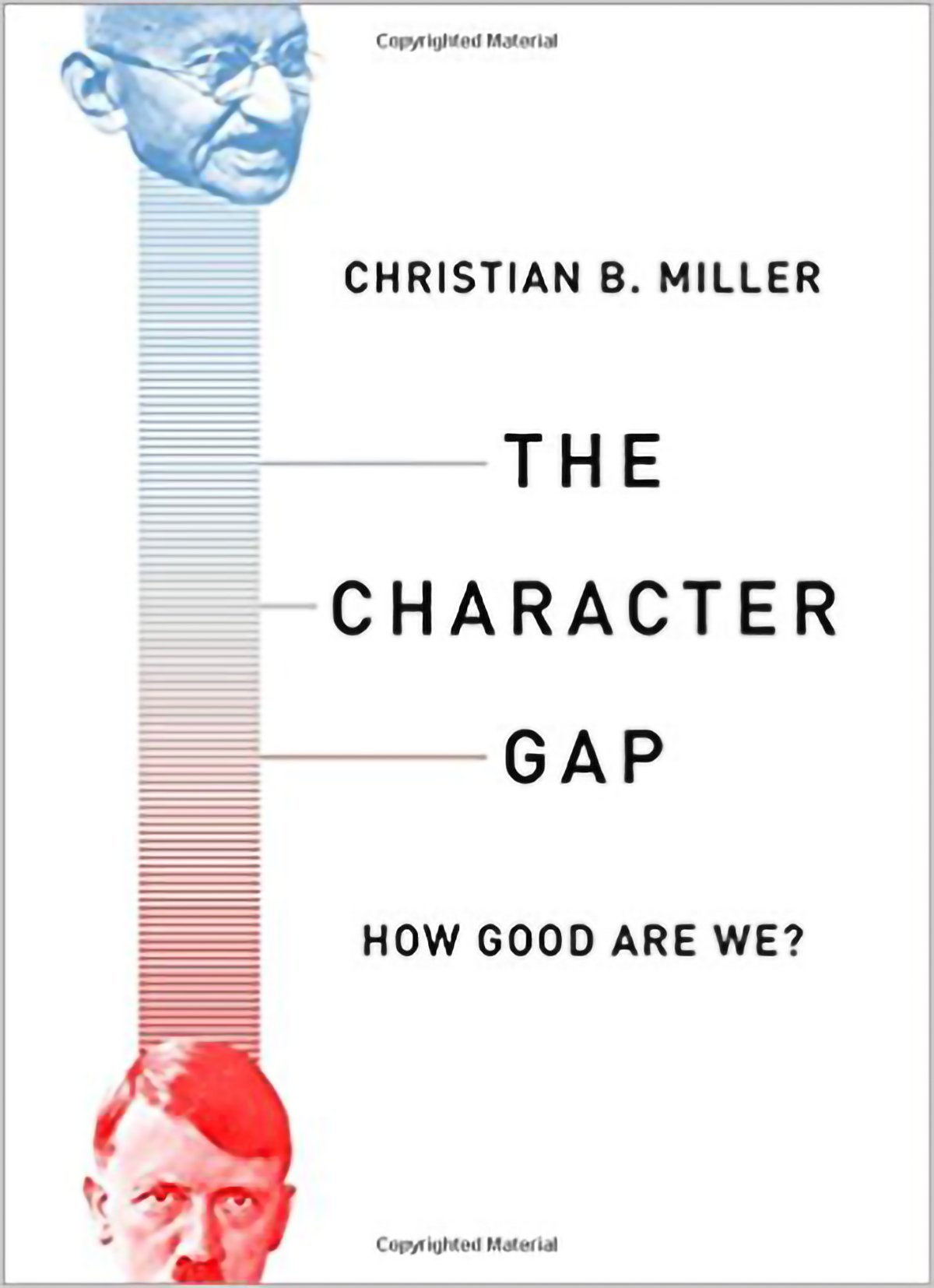
So… Am I a Good Person?
- December 26, 2017
- by
- Brandon Miller
A Review of Christian B. Miller’s The Character Gap
My wife and I were perusing a gift-display at Target the other day when an elderly man on an electric scooter snailed by. His scooter was clearly running out of battery, traveling at a brisk quarter-mile an hour, and he was visibly frustrated by this lack of mobility. I felt drawn to help, to do something, at least tell a store employee about him… but I did nothing. Why? I would like to think that at this point in the sanctification process, I have reached the “help a stranger in need out” level, especially when it wouldn’t have inconvenienced me in the slightest. I mean… I know what the right thing to do is, so why didn’t I do it?
Enter Christian Miller. Christian Miller (who I called Dr. Miller back then) was the professor of my favorite undergraduate course at Wake Forest, Philosophy & Christianity. He is also the director of The Character Project, a multidisciplinary initiative “using the complementary perspectives of psychology, philosophy, and theology to better understand what our characters are like and how we can improve ourselves as persons.”[1] In his new book, The Character Gap, he takes the information learned from years of collaboratively studying character and presents it to audiences who might not have multiple PhDs. This is the first time that much of the information is being presented to popular audiences.
So, what does he find? What do psychological experiments tell us about what kind of people we are? Is the average person a good person? This picture is a complicated one. For instance, one study tested what people did when they were placed in a room with a stranger and a loud noise was heard from another room. A woman then cried out in pain. If the stranger accompanying the person in the room did nothing to help the person, only 7% of people being tested attempted to help the acting woman in pain.[2] This study suggests that the majority of us wouldn’t even help someone in danger simply because a stranger with us didn’t take the lead! This illustrates the radicality of the parable of the Good Samaritan. (If you need a refresher see Luke 10:25-37). Despite that in our hearing of the parable, we might be struck by the insensitivity of the Priest and Levite, we must face the fact that most of us would do the same thing as them if we were in their situation. But the parable asks us to be better people, to question our base instincts and go against them.
This is where the title, The Character Gap, comes in. How do we get from where we (most of us) are, filled with a cocktail of virtue and vice and falling victim to the cues of our ethical environment… to the place we should be, which, for Christians, is marked by the imitation of Christ? How do we get over our inhibitions to help our neighbor, who might just be on an electric scooter running out of battery in the middle of Target? The book is not written for an exclusively Christian audience; it offers many secular strategies for bridging the “character gap.” But all the worthwhile character-improving strategies he mentions fit snugly in the Christian paradigm. And the last chapter of the book, “Improving Our Characters with Divine Assistance” illustrates how Christianity has strategies in place to help us improve our character, moving its members on to perfection.
This book is consumable by a diverse audience. It makes no assumption about the basic beliefs, practice, education, or life-stage of the person reading it. A non-religious person could read it with ease and get a lot out of it (in fact it would be a great gift for someone discerning Christianity). But I think it is a must-read for Christians. If we take Jesus’ indictment to “Be perfect!” (Matt 18) seriously, then why not utilize the findings of psychology, philosophy, and theology to aid us in this conquest. If we have resources available to help us improve our character, and they affirm what we already find in scripture, then we would be foolish not to take these findings into account. The Bible continually affirms that our character matters. And whatever we believe about our own agency in the matter, only positive things could come from becoming informed of the science, gaining self-awareness through philosophical exploration, and seeing the way it all fits together in the big, beautiful theological picture.
Christian B. Miller is A.C. Reid Professor of Philosophy at Wake Forest University and Director of the Character Project, funded by the John Templeton Foundation and Templeton World Charity Foundation. His new book, The Character Gap, is available now.
[1] Bio found at http://thecharacterproject.com/
[2] Christian Miller, The Character Gap, (New York : Oxford University Press, 2018), 65 –see Latané, B. and J. Rodin. (1969) ”A Lady in Distress: Inhibiting Effects of Friends and Strangers on Bystander Intervention.” Journal of Experimental Social Psychology 5: 189-202 for the original study.






